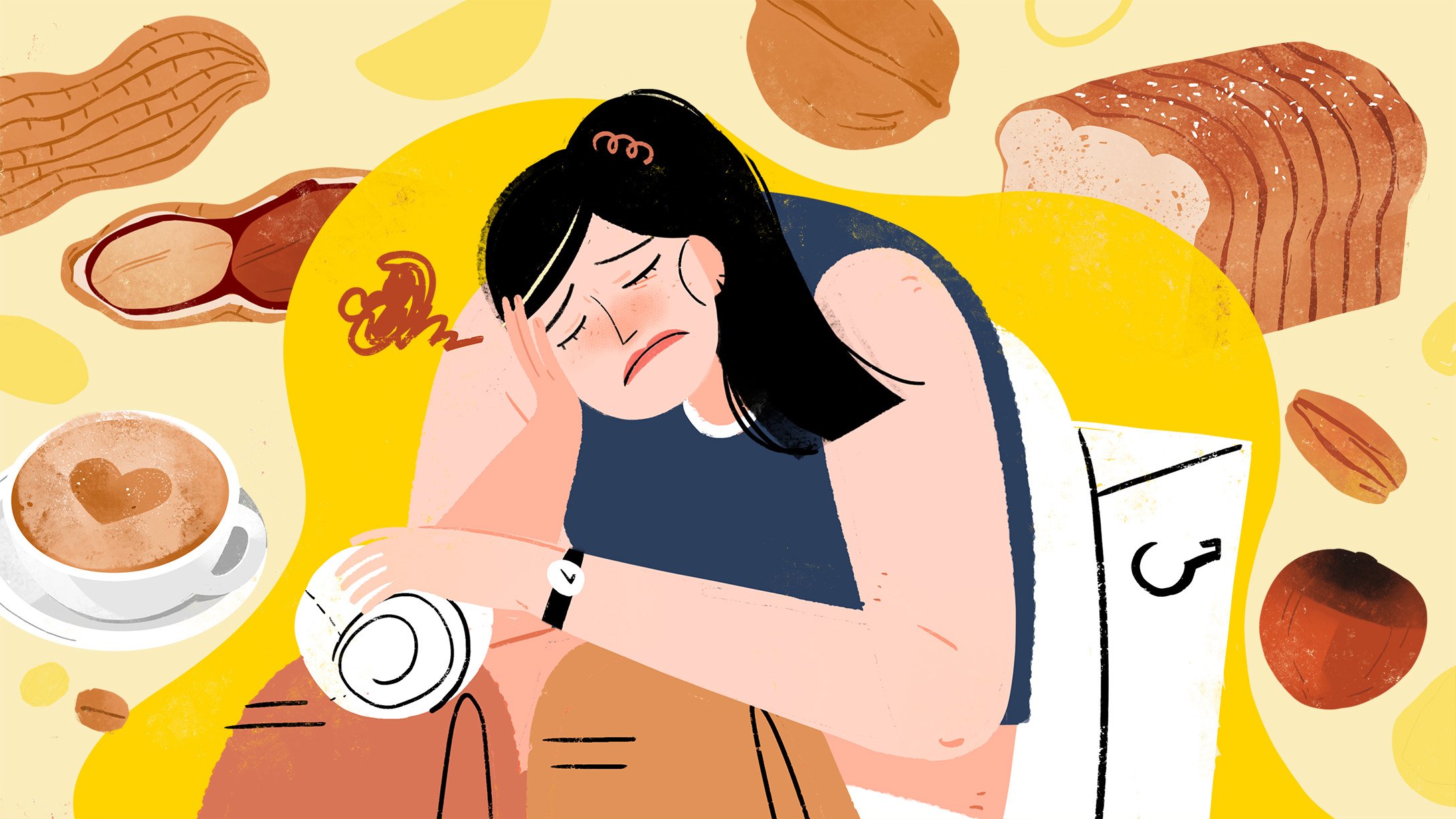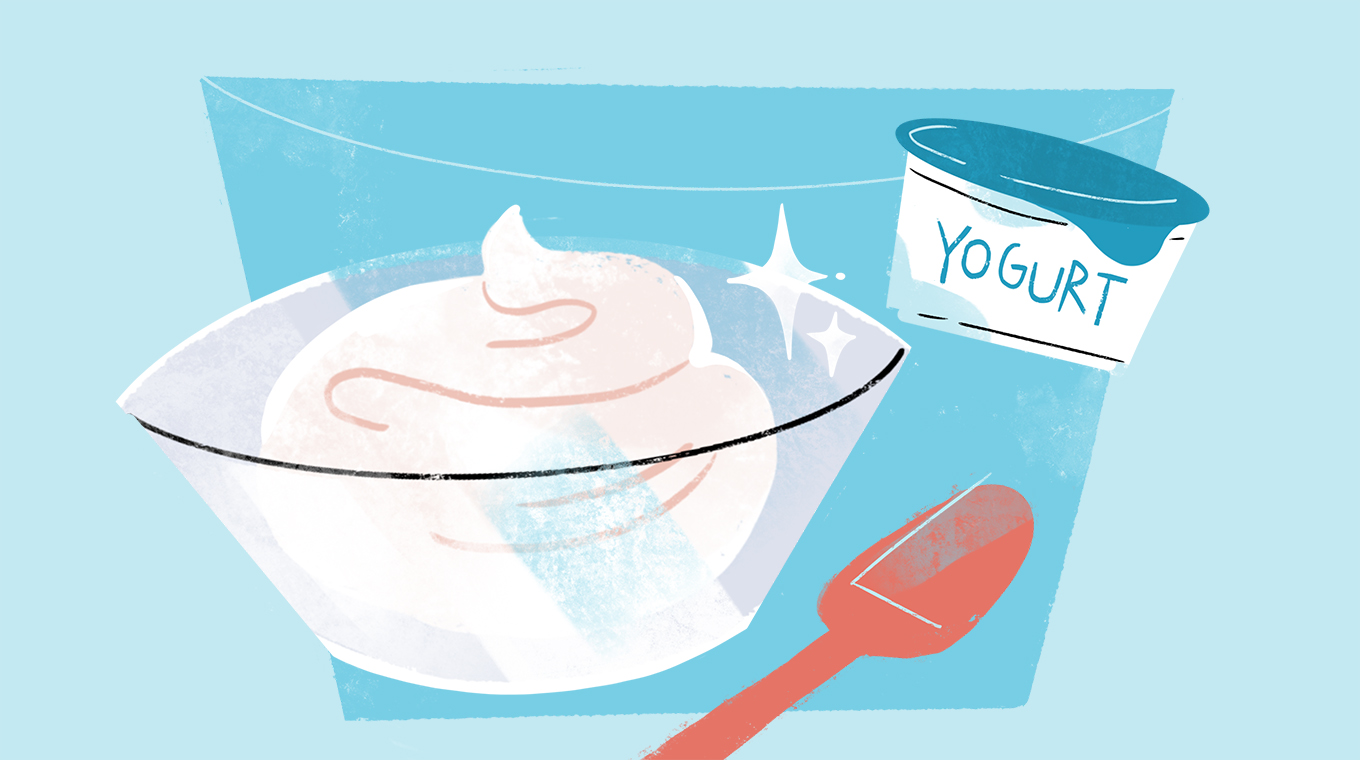
Once in a while, you make your way to the bathroom ready to go "number two," but when you sit down on the toilet, nothing comes out.
Constipation is a common thing, but it can be both uncomfortable and painful. Everyone experiences a variety of types of poop in their lives>; most people's bowel movements are pretty consistent.
One question many people have when they start to experience intestinal distress is, "How often should I poop?"
WebMD explains: "The normal length of time between bowel movements varies widely from person to person. Some people have them three times a day. Others have them just a few times a week."
It's pretty normal for people to have slightly abnormal bowel movements every once in a while. However, if you go more than three days without pooping, that's when it counts as constipation.
When you can't "go," you start looking for constipation relief. While there are plenty of items you can purchase to ease your intestinal discomfort, there are actually a lot of at-home remedies as well.
More from LittleThings: Gumby Is Returned To Shelter 11 Times Before Staff Discovers He'd Already Found His Home
One of the best ways to aid digestion naturally is to eat foods that make you poop.
Read on to find some of the top foods that will help you poop.
What Causes Constipation?

There are a lot of possible causes of constipation.
This can range from changes in diet or activity to eating too much dairy, not getting enough water or fiber in your diet, and stress.
It might seem counterintuitive to add more food to your stomach when you're all blocked up, but there are actually a lot of foods that can help with constipation.
1. Pears

Fruits and veggies are good for constipation in general because they are good sources of water and fiber.
Pears, apples, and plums have a lot of fiber in their skins, so the best way to eat them is raw.
WebMD explains that the "sweet fruit is packed with vitamins and antioxidants, and it has a lot of fiber and water, which can help with constipation."
2. Popcorn

Popcorn is not only a delicious snack, it's also a great food to help relieve constipation.
WebMD explains that it's filled with fiber, which many people are not aware of. Fiber helps get things moving, which can make pooping easier.
Dr. Charlene Prather explained to Everyday Health, "Popcorn is a great low-calorie way to get more fiber in your diet."
3. Almonds

Almonds are great for relieving constipation.
Like other nuts, they should be eaten in small amounts, along with plenty of water.
Additionally, seeds are great for aiding digestion as well, so if you're not in the mood for almonds or other nuts, grab a handful of pumpkin or sunflower seeds.
4. Lentils

Lentils, which are high in fiber and have similar properties to beans, are great for making things move along in your gut.
WebMD explains, "These can make for a great side dish (try them with sausage), and they're good in salads, too. They can even be hearty enough to have as a main course, thanks to a healthy amount of protein. And, oh yeah, they help you poop."
5. Potato Salad

According to WebMD, "Cooled potatoes have fiber and a lot of something called 'resistant starch.' This 'resists' digestion, and some of it ends up in your large intestine, where it helps good bacteria grow."
Another great way to get your potato fix? Baked potatoes or baked sweet potatoes.
Potato skins have a lot of fiber, so make sure to keep the skins on when you cook and eat them.
6. Watermelon

Watermelon is more than just a yummy summer snack; it's a delicious way to get things moving down there.
"It doesn't have a lot of fiber," WebMD explains, "but it's 92 percent water, and that can encourage a bowel movement."
7. Oatmeal

Oatmeal is not only a delicious breakfast food, it is also jam-packed with both soluble and insoluble fiber.
According to Health, "Insoluble fiber adds bulk to stool and helps food pass more quickly through the stomach and intestines, while soluble fiber dissolves in water and forms a gel-like material. Together, the two types of fiber work together to bulk up stool, soften it, and make it easier to pass."
Oatmeal also absorbs water, which aids with digestion, according to WebMD.
8. Raspberries

Everyday Health says, "For a sweet constipation remedy, take your pick of luscious raspberries, blackberries, and strawberries."
9. Prunes

One of the first foods for constipation that comes to mind is prunes, and there's a good reason for that!
All dried fruits are good for constipation relief, so you can take your pick of dates, figs, prunes, raisins, apricots, and more.
Dr. Prather says, "Prunes, in particular, are great because they not only are high in fiber, they also contain sorbitol, which is a natural laxative."
10. Coffee

If you've ever noticed that you have to poop after drinking your daily cup of coffee, there's a reason for that.
"Experts believe that coffee stimulates muscle contractions in the colon, which then helps you go to the bathroom," says Health.com.
11. Yogurt

Yogurt, on top of being a delicious snack, is also very good for your digestive health.
"Many yogurts contain live active bacterial cultures, or probiotics, that replenish the good bacteria in your gut," Health.com explains.
12. Kiwis

Dr. Elizabeth Blaney explained to Health.com that the main problem with a lot of fruits is that they're high in sugar, which can cause gas. She does add, though, that high-fiber, low-sugar fruits such as kiwis don't bring on bloated tummies.
13. Oranges

Dr. Gina Sam of Mount Sinai Hospital spoke with Health.com about the benefits oranges can have on digestion.
Instead of drinking orange juice, go for an actual orange.
Health.com explains that "citrus fruits contain a flavanol called naringenin, which Chinese researchers in an animal study found could work like a laxative to help treat constipation."
14. Spinach

Spinach, like most of these other foods, is high in fiber. It also has magnesium, which is helpful in relieving constipation.
Dr. Blaney explains that magnesium helps the colon contract, and it also "helps draw water in to flush things through."
15. Beans

Health.com writes, "Beans contain resistant starch, a fiber-like starch that helps improve transit time in the colon, acts as a mild laxative, and helps balance the bacteria in your GI tract."
"Cup for cup, beans … provide twice as much fiber as most vegetables," explains Everyday Health.
But if traditional beans cause you too much discomfort, you can opt for green beans instead. They're very different from traditional beans, though they still have a good amount of fiber. Additionally, they're low in fermentable sugar, so they won't make you gassy like normal beans.
16. Whole-Grain Bread

Everyday Health explains that "increasing the whole grains in your diet is an effective constipation remedy."
Eating whole-grain bread is also a good way to avoid future blockages: It's high in complex carbohydrates and fiber while being low in fat.
17. Broccoli

Everyday Health says that "broccoli is a superstar source of fiber. It's also low in calories and a great source of nutrients."
18. Nuts

Like many of these other foods, nuts have huge amounts of fiber. According to Everyday Health, some of the best nuts are peanuts, walnuts, and Brazil nuts.
Just make sure not to eat too many: Nuts are calorie-rich foods, so you should eat only a few at a time.
Have you ever tried any of these foods to relieve constipation? Is there anything we left off this list? Let us know in the comments!




